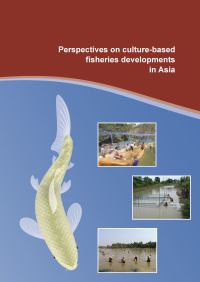Indicators of progress, consensus-building process and policy recommendations
30 January 2004 | Graham Haylor, Ashish Kumar, Rubu Mukherjee and William Savage | 927 Downloads | .pdf | 354.15 KB | India, Livelihoods, gender and social issues
There are many “stakeholders” involved in the development of schemes to support tribal people to undertake aquaculture. These should include tribal people, researchers, policy-makers and others. Stakeholders often face a situation in which different people have conflicting views. Such differences can be over the appropriate goals of a scheme, the types of outcomes, who should be helped and in what way, or the merit and worth of particular activities.
Sometimes when people have conflicting views they argue, increasing their differences. Sometimes people are unable to say what they think, perhaps because they are intimidated by others, or because it would seem wrong to criticise a boss or an older person. The Consensus-building Process is a useful decision-making tool that can be used to build consensus or limited agreement in situations like these. The purpose is for those involved to move towards a “oneness of mind” (consensus means solidarity of belief). The purpose is to reach a consensus together.
Each member of the “group” knows who the other group members are but each member works separately. In the first step, opinions or views on policy change are presented for comment to state and national government policy-makers to establish views and opposing views among the group. A moderator then collates the responses and returns them to the participants. They are then presented with the comments of everyone involved in the process (but without knowing which comment came from which person). They are now free to agree or disagree and to change their own view, namelessly.
All participants in the process are then to accept the collected response of the moderator and support it, perhaps changing their views to align with the new emerging consensus, or to reject it and propose further arguments why others should change their views. Through several iterations of this evolutionary process, “oneness of mind” will be sought. The technique keeps the benefits of group decision-making while avoiding some of its limitations, e.g., over-dominant group members, political lobbying, “not wanting to criticise the boss”.
Creative Commons Attribution.
